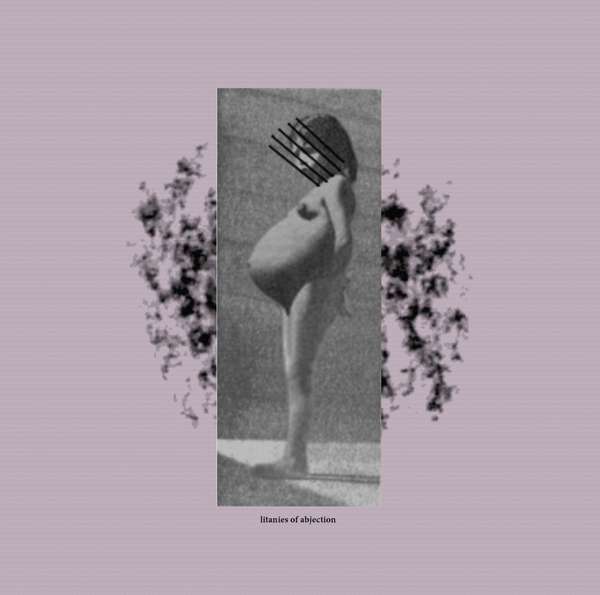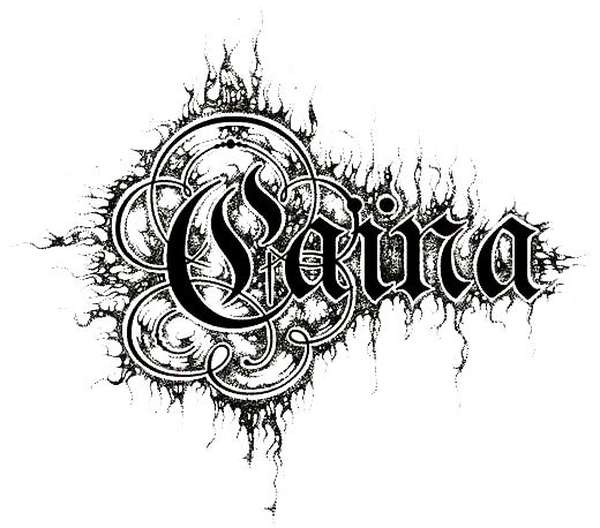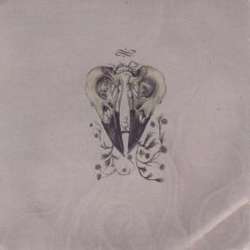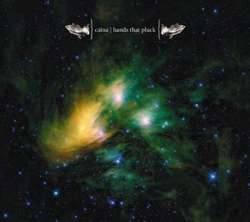Litanies Of Abjection isn't your standard Caïna release. It isn't what you expect and it certainly isn't a black metal record. It's something new, different and it's also incredibly personal and as such a terrifying and oppressive listen. For those who have followed the musical career of Andrew Curtis-Brignell, the change and shift shouldn't really come as that much of a surprise. He disbanded Caïna in 2011 and we conducted an interview with him at the time that showed that he was quite certain that Hands That Pluck would indeed be the final Caïna album. That he went into it knowing this and the album that was borne from those feelings was the pinnacle of what Caïna could create. Cut to the latter stages of 2012 and Curtis-Brignell announced that Caïna was back. It was a complete turnaround and it's something that we talk about during a new interview.
Litanies Of Abjection came out of a time of huge shift and turmoil in Andy's life, and while it's not for the likes of us to dissect, it clearly left a huge scar on him and so the record bears the brunt of an unravelling mind trying to cling on to some semblance of normality. It's intense, but it feels necessary and first track "Majors" is testament to the power of sound. Electronic blips signal the beginning of the album and the most noticeable thing about the song is the measured vocal style which is almost spoken, very deep and a lot like something that nowadays Scott Walker would produce if he was a little more mentally unhinged. Only a little. This record is, to put it bluntly, fucking weird, and it's a difficult thing to experience. It feels almost voyeuristic, that we've been allowed this peek into the mind of a man and we can't turn away from the filth that resides there, not least when the song ends on inhuman and unholy screams that no matter how many times you hear, you cannot prepare yourself for.
The pace takes a downturn on the languid, soulful vibrations of "Ascetic" and the strange, Nick Cave-esque timbre that flows throughout the record is a solid tribute to a peer - yet the homage is never overdone or pushed to the forefront. This is merely a musician allowing his freedom to surge through some of the most curious beats and ebbs of sound that you're likely to hear - along with a subtle nod or two towards the horrors of war (or life, or both). "Family Planning" harks back to a Caïna sound that you may be more familiar with and leads into the truly distressingly melancholic "Lina Medina." This song portrays the story of the very real Lina Medina, a young girl who is on record as being the youngest ever girl to give birth (she was five years old) and as such the depression and despair and alienation is felt quite strongly throughout the song and the words, that are again spoken for the most part, are draped in sadness. Sadness for Medina but also for the dissolution of something within the self and within the world of today. It's genuinely affecting and the gorgeous and sorrowful music that lies behind the crackling facade aid to conjure an atmosphere of absolute distance.
"Iteration" trips along a tempo that belies the previous despair, all electronic drums and flickers of light behind the eminent darkness. Small glances of possible hope rise up from the misery, deeply hidden but edging into the progression of the song as it moves along towards the haunting "Ghost Apertures" and its cloying sense of horror. "Redacted" closes Litanies Of Abjection on a saturating, morose note with Curtis-Brignell's voice again taking on a spoken word pace that offers supplication to those that have wronged him and a tone that has absolute and utter woe at its core.
Litanies Of Abjection is not a black metal record although it's dark and personal subject matter are certainly within the realm of the genre Curtis-Brignell is known for. Caïna has always been the sound of evolution and this new album is a defiant stand against what is expected of a musician who has touched base with all major influences so far during his career. Why stick to what is known? Of course a lot of bands and artists do just that, eventually becoming parodies of themselves and yes, some bands stick to what they're good at and it never fails, but for a project such as Caïna, that was never going to be an option. Steel yourself for the discontent and disconnect of the modern black metal artist.









